In Partnership with CSL Behring

If you are new to clinical trial research participation but are interested in learning more, the first step is to let your transplant team know that you would like more information about clinical trials. Your doctor is your primary source of information about which trials are available at your transplant center and for which you may be eligible. It’s important for you to ask your healthcare team questions to better understand whether clinical trial participation might be a good option for you.
Types of Available Trials
There is an ever-growing number of clinical trials available for kidney transplant recipients, including:
- the evaluation of new anti-rejection and anti-infection medication.
- trials assessing the use of different incisions and approaches to surgery, especially minimally invasive procedures performed with laparoscopy or robotics.
- trials to evaluate various combinations of more tolerable treatments.
- to minimize the use of anti-rejection drugs.
While doctors may not be up-to-date on all possible treatment options, your doctor may be able to direct you to national resources on the internet or to other healthcare centers.
Understanding Your Individual Treatment History and Goals

Before asking about available clinical trials, it’s important to understand your diagnosis and specific treatment history. Being informed about your full experience will help your doctor better determine your participation eligibility. Clinical trials have specific eligibility and exclusion criteria:
- eligibility criteria means that to participate, you must meet specific requirements.
- exclusion criteria means you must not have other specific reasons that would prevent you from participating in a trial.
Different trials may have varying levels of potential risk and benefit based on many factors including the type of study, the potential drug or potential therapy that is being tested, and the disease or condition being studied.
This is why it’s important to ask your doctor how trials will differ in meeting your individual needs and goals. It is also important to think about
- how much time you are willing commit
- how far you are willing to travel
- the potential side effects of the trial treatment
- what your goals are for your overall health if you decide to participate
Keeping track of these expectations should help you make an informed decision about participating in a trial.
Starting the Process

If you find a study in which you are interested in participating, you or a member of your transplant team can contact the person listed as the study coordinator or recruitment specialist. During the discussion about your eligibility, be sure to ask questions to confirm your eligibility, find out what the next steps are, and what will be required of you during the trial.
Details such as:
- the frequency of visits.
- personal cost and insurance coverage.
- duration of the trial.
- any required testing (what type and how often).
are important to walk through with the study team.
There are many factors that you must consider to determine if a trial is appropriate for you. The details may sometimes be overwhelming. You should never feel compelled to make a decision, and you should only make a decision until you have learned as much as you can about your disease, your overall health condition, and about various available treatment options. In most instances, you are not permitted to be enrolled in more than one study at a time.

If you find a trial that seems like the right fit for you, let your transplant team know you are interested so that you can talk to them about your options and potential eligibility.
If you are ready to begin searching for trials on your own outside of your transplant center, these are a few resources to explore. Visit ClinicalTrials.gov, which provides recipients and care partners with a national, relatively simple access to information about ongoing clinical trials. Additionally, WCG Center Watch, American Society of Transplant Surgeons, and American Society for Transplantation have lists of clinical trials that are currently enrolling kidney transplant recipients.
In Partnership with CSL Behring
Possible Benefits of Being Part of a Clinical Trial

As a research participant, you help researchers explore potential new treatments. Through participating in a clinical trial, you may also learn more about your condition, which can help in your disease management. The insights that come from research studies help those in the medical field learn new ways to help others with your condition.
Possible Risks of Being Part of a Clinical Trial
Research participation does not come without risks. The study treatment or study medication being tested may not make you feel better, or could make you feel worse, for many reasons, including:
- interacting with your other medications
- starting at an unideal time in the course of your disease progression
- not working in humans like it did in earlier experiments
- working better in one sex or certain racial/ethnic background
- risks inherent to the study drug or how it is administered

New treatments are not always better than standard treatments and could, for instance, potentially be less safe or less effective, or could potentially interfere with the treatments you are currently receiving. You will likely have more medical visits, and you may spend additional funds on matters such as travel. The cost of medications and tests that are not part of your standard of care may be covered by the study, but it’s important to review this with the study staff to ensure you’re fully informed before you decide to participate. There is also the risk that the treatment may have known or unknown side effects, which can result in various types of complications. The study will be stopped by an independent group of scientists (called an Institutional Review Board) if the rights and welfare of the study subjects are not properly protected.
In Partnership with CSL Behring
Clinical trials for transplant recipients evaluate different types of potential treatments in individuals who are waiting for or have already received a transplant. These studies may examine new anti-rejection and anti-infection drugs, new approaches to surgery, or new combinations of treatments.
The goal of clinical trials is to gain knowledge and understanding whether potential study treatments can safely and effectively meet certain study criteria, such as prolonging life expectancy, prolonging survival of the transplanted organ(s), improving a person’s quality of life, and improving current medications.
What is the Process to be Accepted for a Kidney Transplant Clinical Trial?

Prior to being accepted to a clinical trial, you will be screened to make sure that you qualify for the trial based on inclusion and exclusion criteria.
- Eligibility criteria means that to participate, you must meet specific requirements.
- Exclusion criteria means you must not have other specific reasons that would prevent you from participating in a trial.
If accepted into the trial, the first visit consists of required testing, such as cognitive and/or physical tests. If the study is a randomized controlled trial (RCT), you will be randomly assigned to a treatment or control group. The randomization process determines:
- who receives the medication or procedure (treatment group)
- who receives a placebo or standard procedure (control group).
Randomization is usually done by a computer program. Randomization may be blind, which means that the doctor (PI) and/or the study coordinator may or may not know what study therapy the participants receive.
Deciding Whether or Not to Participate in a Clinical Trial

Before you agree to participate in a clinical trial, an investigator and/or a study coordinator will explain to you in detail:
- the goals and purpose of the designated clinical trial
- the plan and methods for any required visits and tests
- the possible side effects of the tested agent that you may experience
- how participation in the study might affect your daily life
- how your transplant might be affected by or without the treatment
- and what is expected to happen to you and your transplant during the clinical trial itself and predictably afterwards.
During this initial discussion about the trial, you will have the opportunity to ask any questions that you might have about the clinical trial, including the potential results and any concerns about complications. The research team will give you an “informed consent form” that explains the details of the clinical trial, including known risks and side effects and their potential severity. You will be informed about the voluntary entry and exit from the study, the process of being in the study, and reasons why you may need to be removed from the study. You may also review and share this form with your doctor, care partner, or family, when deciding if enrolling in a clinical study is right for you.
If you decide to take part in the clinical trial, you will sign the informed consent form in the presence of someone from the study team. This will likely be either the principal investigator (PI) of the study or your primary transplant physician, depending on how the study is set up. After you sign the informed consent form, you can change your mind and withdraw from the clinical trial at any time, and for any reason or no reason at all, either before or during the trial. Deciding not to be in a clinical study, or leaving a clinical study at any time will not jeopardize your medical treatment you would otherwise receive.
What to Expect During a Clinical Trial
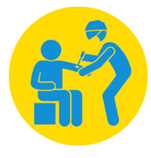
Throughout the trial, trial participants must report any issues or concerns to the research team. There will be regularly scheduled visits for evaluations, testing and discussions. Some follow-up visits may also be conducted by video or telephone. During these visits, the research team collects information about the effects of the treatment and reviews each participant’s health and safety. When the trial concludes, you will no longer have scheduled visits and testing specifically for the study, but you may continue to be seen regularly by the doctor or PI of the trial. Furthermore, you will no longer receive the treatment being studied after the trial, unless explicitly allowed.
In Partnership with CSL Behring

Having a loved one go through any kind of chronic illness and/or life-changing health diagnosis can be incredibly challenging. There is no simple guidebook for when the unexpected happens, and handling change can be tough when treatment options become more experimental and possible outcomes become less predictable.
Preparing for Change

Going through a clinical trial can be a disorienting experience, not only for the recipient but for their entire support team. It can be difficult to be fully prepared for the changes that might affect the recipient’s treatments and daily ritual.
It is important to remember that clinical trials have safeguards in place to ensure that the participant’s rights are protected. What a participating recipient might need most from their caregiver isn’t necessarily medical treatment or advice– but rather emotional support. This includes:
- Acknowledging their fears and concerns.
- Validating their feelings.
- Listening with the intent of supporting rather than responding.
- Making sure the recipient knows they have someone to lean on emotionally when they are struggling with their physical health.
A Caregiver’s Self Care

As a caregiver, it can easily become overwhelming to listen to a loved one’s experiences without being able to provide direct solutions. The emotional toll that might result from participating in a clinical trial can affect the caregiver just as much as it affects the recipient. As a caregiver it is also important to avoid sacrificing personal health when caring for a loved one.
- Try setting boundaries that allow the caregiver to have personal time for self-care.
- Enlist external resources to allow the caregiver to decompress regularly, such as utilizing other friends and family.
- Allow time for a caregiver to process emotions and prepare for change at their own pace.
Recipients and caregivers need support, especially in situations filled with so many unknowns, such as in the case of clinical trials. Making sure that you are taking care of yourself is crucial to being supportive care partner.
Delegating Care to the Community
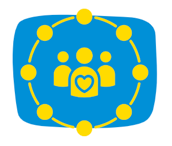
While all focus and attention seem to be consumed by medical events, it can be easy for the recipient to lose sight of the day-to-day things that still need to get done. This is something that can be delegated to members outside of their support tier. A recipient may not be comfortable asking their community for help when they need it, so offering suggestions can aid in their ability to reach out for extra care. Additional support can include:
- Sending a quick text at the grocery store to see if the recipient needs anything.
- Having a neighbor mow the recipient’s lawn after completing their own.
- Dropping off gift cards for gas for food or freezer meals for when the recipient needs a quick and easy dinner.
- Inviting the recipient’s kids over for a playdate to get them out of the house.
These are only a couple examples of easy things that can provide immense support for someone going through a health challenge. Never underestimate the value of simply checking in- a small gesture of support can go a long way.
Using Resources and Doing Research

Depending on the trial setting, some hospitals have caregiver support groups, which can also be a valuable resource. If you’re unsure of what support is available to you, it can be helpful to:
- Ask the nurse, coordinator or social worker on your medical team.
- Reach out to other transplant recipients in your area.
- Participate in transplant recipient forums, Facebook groups, etc.
In clinical trial settings where so much is still undetermined, it can be frustrating to try and understand everything or get adequate answers. Your loved one may not have the time or emotional capacity to educate you, nor is it their job to do so. This is a great opportunity to do your own research. You can:
- Speak to the medical team involved
- Read any information provided by the medical team.
- Read online forums and materials related to the specific transplant type.
- Ask questions.

Knowing as much as possible about what is expected, the goals of the trial, and potential side effects can be helpful in assisting and advocating for your loved one. It can be easy to get overwhelmed as a care partner but remember this: it takes a village to get through major changes in healthcare and what your loved one needs most is a strong support system. Just being a supportive presence can help make even the toughest time a little bit easier. Obtaining information on the clinical trial and how to be the best caregiver for a recipient is a step in the right direction.
In Partnership with CSL Behring

Self-advocacy is a key component to navigating life in the world of medicine. The healthcare system, while a vital resource, is just that: a system. It is designed to be effective and efficient, providing assistance to those who need it. However, in doing this, it can sometimes lose sight of recipient-oriented care.
While doctors know science and research, only the recipient knows what it is like to live in his or her body, and, ultimately, the recipient is the one who has the most invested interest in the care being given. If your body was a company, you could consider yourself the CEO.
How to Become Your Best Advocate

The foundation of self-advocacy is understanding your condition. Doing your own research is an important part of this. Doctors are a valuable resource since they have conducted a lot of research about a specific topic, but there is room for the recipient to step into the position of being the expert on their own case. Even in the same disease area, there can be a variety in presentation and symptomatology. Your own lived experience, and learning from the lived experiences of others, can be a very useful tool. This can be something as simple as reading medical journals to find articles that relate to your specific diagnosis or set of symptoms. Knowledge is power and the more you know, the more prepared you will feel when it comes time for the doctor’s appointment or hospital visit.

In addition to doing your own research and discussing with your physician, it’s also important to ask valuable questions. Knowing the risks and benefits of each viable treatment, anticipated outcomes, alternative diagnoses for symptom presentation etc. is very important to making informed decisions. Ask questions, and keep asking until you feel as though you’ve gotten an answer.
You can request all concerns, tests refused and treatments tried to be documented in your chart if your team consists of more than one provider or if you are interested in seeking a second opinion. Having your own copy of all relevant medical records is also a good idea. This saves you the time and energy of having to explain it and leaves a tangible trail to reference in determining future diagnoses, tests and treatment.
Finding Support in Self-Advocacy

If you are struggling to voice your feelings and concerns, it can be helpful to bring someone with you to help you advocate or to help absorb information. FaceTime or speakerphone calls can be a way to involve a care partner if one cannot physically attend the appointment with you. It can also be helpful to write down key questions or concerns you wish to have addressed beforehand and bring them with you.
It helps to know that it is within your right as a recipient to get a second opinion or to request a different provider if you feel your concerns are not being addressed. In certain situations, and with certain types of health insurance, a self-referral is able to be made by directly contacting physician’s office as opposed to coordinating communication between multiple care providers. This can be a valuable resource to recipients who feel their needs are not being met.
The key to surviving and thriving as a recipient within the medical system is to be your best advocate. Knowing you are in charge of your own body and care plan can prevent many unwanted headaches. Keeping detailed documentation, doing your own research and voicing your opinion can be the difference between feeling like a victim and feeling empowered.
In Partnership with CSL Behring
One of the most stressful times in a transplant journey is waiting for your kidney transplant. In this part of your journey, it is crucial to look after yourself and prepare for your transplant by staying healthy mentally and physically.
Qualifying for a Kidney Transplant
Before even joining the wait list, you will have a full health evaluation by a transplant team at the transplant center that you choose to visit. The tests usually involve the following[1]:
 Complete medical and surgical history:
Complete medical and surgical history:
- The transplant team will carefully evaluate past illnesses, surgeries, and treatments, as well as your family history.
 Physical exam and psychosocial exam:
Physical exam and psychosocial exam:
- This evaluation is meant to assess whether you are physically and mentally ready for a transplant, which is a major operation with its own risks, as well as a major life change.
- Tests or consultations evaluating for other or concurrent medical conditions such as heart disease, pulmonary disease, etc.
 Compatibility tests:
Compatibility tests:
- These tests are necessary to
- try and find the best kidney match for your specific blood and tissue type .
- reduce the risk of rejection or your body’s immune system attacking the donor kidney.
- The combability tests include the following:
- A blood typing (ABO) test to assure that a donor kidney is a compatible blood type match.
- Tissue typing to assess a good match in tissue type between recipient and donor and reduce the risk of rejection.
- Crossmatching antibodies in your body to the donor kidney to reduce the risk of rejection.
 Blood tests:
Blood tests:
- Check the function of your organs.
- Assess your blood sugar levels and your electrolyte balance.
- You may also have special tests for infections, such as HIV, and hepatitis tests.
 Cancer screening:
Cancer screening:
- A prostate exam for men.
- A mammogram and pap smear for women.
- A colonoscopy, skin cancer screening, etc.
If there are problems with any of these tests, the transplant team will contact you and investigate further. Having another condition or health issues does not necessarily mean you will not qualify for the transplant waiting list. However, it is imperative to take care of your physical health and comply with instructions from your transplant team[2].
Once the tests have been evaluated and discussed, the transplant center will decide whether or not the team will recommend you for a kidney transplant. If you qualify, you will join the waiting list.
While Waiting for a Renal Transplant
Once you have been evaluated and accepted onto the waiting list, you will be assigned a priority score. While the transplant journey is far from over, this is a huge step toward receiving a kidney transplant which can potentially change your quality of life.
The wait may be long, but there are many things you can do to maintain your health and prepare for your transplant surgery, as well as life after transplant[3].
- You should always consult your doctor for personalized medical advice and ask them any questions you may have regarding your condition and treatment.
- Carefully monitor your diet and fluid intake.
- You will need to avoid foods high in potassium, such as bananas, and monitor the amount of fluids you drink, especially alcohol.
- Your transplant team will inform you on your diet and fluid restrictions.
- Exercise and stay at a healthy weight to help reduce the risks of complications during your transplant surgery and recovery post-transplant.
- If you smoke, stop smoking as soon as possible. Smoking has a negative impact on kidney transplant outcomes and your survival after transplantation[4].
- Attend all your appointments and manage other conditions. If you are on dialysis or are awaiting a preemptive transplant, attend all of your scheduled medical appointments.
- Remember to comply with your medications and maintenance dialysis and keep the rest of your body healthy with non-kidney appointments like regular physicals, immunizations and colonoscopies.
Understanding the Wait List
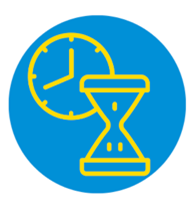
An important thing to understand during the waiting period is the waiting list itself. You can either join the waiting list for a deceased donor or wait for a living donor.
The waiting list for a deceased donor is run by the United Network for Organ Sharing (UNOS). It is determined by:
- the type of kidney disease
- likelihood of successful transplant
- years since starting dialysis (or number of years on the waiting list).
The average wait for a deceased donor kidney is three to five years. You are able to register for a donor kidney at multiple transplant centers or in multiple states, though many choose the closest transplant center.
Donations from living donors are much rarer and have a much shorter waiting period. The process is expedited and is on average three months long if you can find a relative or friend who
- is willing to donate,
- is compatible,
- is evaluated as an acceptable living donor.
Certain transplant centers specialize in living donations and will validate that the kidneys are a good match and that the donor is in good physical and mental health before the surgery.
If you secure a living donor who is not a good match for you, there are other options, such as paired exchange kidney transplants where the transplant center “swaps” two incompatible donor pairs for better matches in both recipient/donor pairs. If you would like to read more, check out the Innovations article here.
Receiving Your New Kidney
Once receive the call that you have been selected off the waitlist, and you may only have a matter of hours to get to the hospital. It is important to prepare ahead of time by:
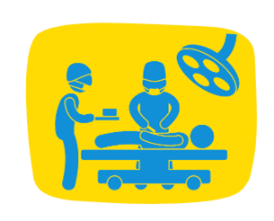
- having a travel plan
- packing list or packed go bag,
- creating a to-do list, which might include items such as calling your pet or house sitter,
- discussing your transplant surgery plan with your loved ones and care partners
- finalizing any family plans, financial decisions, or medical decisions that may be needed, such as writing a living will or assigning a health care proxy.
Life Post-Transplant
During the pre-transplant period, you can get the facts to help you set realistic expectations for you and your loved ones about life post-transplant.
- Ask about what kind of restrictions you may have
- Find out what home assistance you may need
- Discuss when you can return to work or hobbies
- Learn what impact the transplant will have on other conditions, and any other concerns you have.
Your transplant journey is personal and should be tailored to your health needs and goals. A lot of information will be provided about the transplant surgery and post-transplant medications or lifestyle changes, and it may be overwhelming. Be sure to rely on your loved ones and care partner(s) to help you with the information and stress of waiting. It’s also important for everybody to set realistic expectations for your post-transplant life[5]. If you would like more information about life post-transplant, see the article here.
Once you’re armed with information and realistic expectations for both the waiting period and life post-transplant, it is important to stay positive and optimistic. Many find support groups helpful to hear from others who are in similar situations or to find more information through others’ experiences. The transplant journey is a lifelong journey, and it is full of uncertainty. So, having social support, whether that’s your family, friends or community, will help your mental and emotional well-being. Remember – you can bring a care partner, such as a loved one, to appointments and include them in your transplant journey. Caring for your mental health is just as important as caring for your physical health. If you would like to join TransplantLyfe’s community, visit us here.
The information, including but not limited to, text, graphics, images and other material contained herein are for informational purposes only. No material is intended to be a substitute for professional medical advice, diagnosis or treatment. Always seek the advice of your physician or other qualified health care provider with any questions you may have regarding a medical condition or treatment and before undertaking a new health care regimen, and never disregard professional medical advice or delay in seeking it because of something you have read here.
[1] Englesbe, M. J., Dimick, J. B., Fan, Z., Baser, O., & Birkmeyer, J. D. (2009). Case mix, quality and high‐cost kidney transplant patients. American Journal of Transplantation, 9(5), 1108-1114.
[2] Dageforde, L. A., Box, A., Feurer, I. D., & Cavanaugh, K. L. (2015). Understanding patient barriers to kidney transplant evaluation. Transplantation, 99(7), 1463.
[3] Reimer, J., Franke, G. H., Lütkes, P., Kohnle, M., Gerken, G., Philipp, T., & Heemann, U. (2002). Quality of life in patients before and after kidney transplantation. Psychotherapie, Psychosomatik, Medizinische Psychologie, 52(1), 16-23.
[4] Devresse, A., Gohy, S., Robert, A., & Kanaan, N. (2021). How to manage cigarette smoking in kidney transplant candidates and recipients? Clinical Kidney Journal, 14(11), 2295-2303.
[5] Jones, J., Rosaasen, N., Taylor, J., Mainra, R., Shoker, A., Blackburn, D., … & Mansell, H. (2016, October). Health literacy, knowledge, and patient satisfaction before kidney transplantation. In Transplantation Proceedings (Vol. 48, No. 8, pp. 2608-2614). Elsevier.
In Partnership with CSL Behring
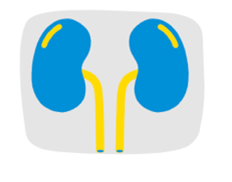
A kidney transplant is a life-changing gift that can drastically alter the quality of life. However, there are many medical, physical, and emotional changes to be expected while undergoing a transplant. There are many different types of transplants and the associated transplant surgeries vary in length of wait and amount of preparation time given.
Kidney transplants can be divided into categories by the donor you receive your kidney from (either a deceased donor or a living donor) or by the timing in which you receive one (preemptive transplantation or non-preemptive transplantation).
- A preemptive transplantation occurs before dialysis is initiated and is generally considered the best option. This is because it avoids the need for dialysis and may result in better patient and kidney survival in the long-term.
- Non-preemptive transplants are much more common and, oftentimes, you may only have a couple of hours to prepare for the transplant itself once a match is found[1].
Scheduled transplants

In the days leading up to the surgery, there are guidelines to ensure that you are in good health and capable of handling the transplant surgery itself. The guidelines differ between transplant centers, so consult your transplant team for specific instructions. Some of the instructions may include:
- You may be asked to avoid blood thinners (most commonly aspirin) for a certain period of time before surgery.
- There may be diet restrictions in the time period before surgery.
- Your transplant team may ask you to stay hydrated in the weeks leading up to your transplant and to monitor yourself for any changes in your condition.
Unscheduled transplants
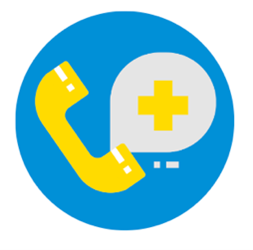
Many transplants start with a phone call from the transplant team letting you know about a possible organ match. There is only a window of a couple of hours to keep the organ from deteriorating. Kidneys can survive outside the body for around 36-48 hours[2], which gives hospitals a short amount of time to alert the patient, and for surgeons and the transplant team to prepare for surgery.
Transplant surgery
The days leading up to the surgery can also be an emotional time. A lot of information will be provided to you and your care partner about life after transplant, your medication regimen, and the possibility of rejection. It is crucial to rely on your care partners and social support for your emotional and mental well-being, as well as to ensure you have all the necessary information.
The transplant surgery itself is typically a four-hour operation. Generally, a patient’s existing kidney will not be taken out unless there’s a medical reason to remove it. The surgeon will make an incision in the lower part of the stomach to place the donor kidney for best access to connect the new kidney to important blood vessels and the bladder.
While each hospital may have different standard operating procedures, your transplant surgery could include the following items:
- Upon arrival at the hospital, there may be a pre-operative checkup.
- The donor surgeon and anesthesiologist will then discuss the surgery and its risks with you and ask you to sign consent forms.
- Once pre-operative tasks are complete, you would be taken to the operating room and the anesthesiologist administers anesthesia. A tube may be placed down your throat to help you breathe during the surgery, which may result in a sore throat for up to a week after surgery.
- Another tube may be passed into your bladder to help you urinate during and after the surgery.
- Finally, an intravenous line will be placed in your arm to give you medications during and after your surgery.
After surgery, you will be taken to a recovery room and monitored as you wake up from anesthesia. You can expect soreness and pain around the incision site, but transplant recipients are often out of bed within one to two days. Your new kidney should begin producing urine soon after that.
Complications beyond rejection

The most feared complication of a kidney transplant is kidney rejection, which happens when your body recognizes the kidney as foreign and your immune system launches an attack against the donor kidney. But there are other early and late complications of kidney transplant, as well as the transplantation surgery itself.
Early complications occur hours to days after surgery and are carefully monitored and often preventable. These may include[3]:
- Increased risk of abdominal abscesses
- Bleeding or blood in urine (a common complication immediately after surgery)
- Abdominal hernias over the site of incision
- Infection in the urinary tract
- Blood clots
- Pneumonia
- Constipation due to narcotic pain medication use
Your transplant team may show you deep breathing exercises to prevent pneumonia and ask you to get out of bed several times a day to prevent blood clots from forming.

Late complications of your kidney transplant may involve immunosuppressive medications. The medications you take after your kidney transplant are meant to reduce your immune system’s ability to attack the donor kidney, but they also may leave you less able to fight off infectious organisms. It is important to continue with your post-operative prescribed medications and instructions to potentially reduce the risk of kidney rejection. Your transplant team will go over any potential complications, which may include[4]:
- Narrowing of vessels that obstruct flow of urine from the kidney to the bladder
- Infection of the kidneys after surgery
- Increased risk of heart disease such as heart failure, high blood pressure or high cholesterol[5]
- Immunosuppressant medication side effects such as:
- Increased risk of skin cancer or lymphoma, possibly linked to the use of immunosuppressant medications
- Increased risk for diabetes
- Opportunistic infections, or common infections that your suppressed immune system has difficulty fighting off, such as herpes simplex or cytomegalovirus
- Changes to appearance such as weight gain, extra hair growth of hair loss, or acne
- Abdominal pain or diarrhea
- Mood swings or cognitive changes
These complications will be monitored through regularly scheduled visits with your care team. Particularly with the immunosuppressant medication related side effects, your physician will try to tailor the right dose for you, which is high enough to prevent rejection but with the least amount of side effects. Consult your care team if you have any side effects, as your side effects may improve with the proper dosage.
The information, including but not limited to, text, graphics, images and other material contained herein are for informational purposes only. No material is intended to be a substitute for professional medical advice, diagnosis or treatment. Always seek the advice of your physician or other qualified health care provider with any questions you may have regarding a medical condition or treatment and before undertaking a new health care regimen, and never disregard professional medical advice or delay in seeking it because of something you have read here.
[1] Parra, C. O., Van de Bruaene, C., Weynants, L., Nagler, E. V., McAleenan, A., Elbers, R. G., … & Goetghebeur, E. (2018). Pre‐emptive versus non pre‐emptive kidney transplantation for end‐stage kidney disease. The Cochrane Database of Systematic Reviews, 2018(12).
[2] Suthanthiran, M., & Strom, T. B. (1994). Renal transplantation. New England Journal of Medicine, 331(6), 365-376.
[3] Buttigieg, J., Agius-Anastasi, A., Sharma, A., & Halawa, A. (2018). Early urological complications after kidney transplantation: An overview. World Journal of Transplantation, 8(5), 142.
[4] Silkensen, J. R. (2000). Long-term complications in renal transplantation. Journal of the American Society of Nephrology, 11(3), 582-588.
[5] Loncar, D., & Hodzic, S. (2018). Cardiovascular Diseases in Patients with Renal Transplantation. In Organ Donation and Transplantation-Current Status and Future Challenges. IntechOpen.
In Partnership with CSL Behring

Life after transplant may look very different from your life now, and it is helpful to prepare for these changes and manage your expectations. Everyone’s transplantation journey is different, and you will experience a lot of uncertainty. With the support of your transplant team, your loved ones and groups such as TransplantLyfe, you can weather this uncertainty and prepare for your post-transplant future. You should always follow the advice of your doctor and your transplant team. A common transplant journey may look something like this, although each person’s journey is different.
Immediately After Transplantation

Immediately after a transplant surgery, a patient should expect to spend several days to a week in the hospital under careful monitoring to watch for signs of transplant rejection or any complications from the surgery. For more information on post-transplant complications, see our article on transplant rejection. Some patients may need temporary dialysis for a few days before their new kidney begins functioning, though for many people, the new kidney will immediately start producing urine. Good nutrition is an important part of recovery and maintenance of a new kidney, particularly right after the surgery. To help heal and recover from the stress of the surgery, your doctor may talk about the importance of consuming enough calories and protein to promote wound healing[1].
The incision site may be sore or painful for patients, which may be normal while healing. The site usually heals within 6 weeks after the surgery. While the wound is healing, your doctor may advise you to avoid lifting heavy objects (10 pounds or more) or exercise strenuously. However, your doctor may recommend that you continue to maintain a level of movement while the wound heals. During this period, you may need to have frequent checkups to adjust your medications and monitor for complications. It may take time and multiple adjustments for you to adapt to your new kidney. It is crucial that you develop a routine for taking your prescribed medications according your doctor’s directions. Some of these medications may need to be taken for the rest of your life to prevent kidney rejection and other complications, such as infection.
Long Term Recovery Post-Transplant Surgery
Around eight weeks after a transplant, transplant patients should be able to resume work, exercise and adopt a regular routine, according to their doctor’s directions. However, there are some long-term adjustments that may need to be made with eating habits in order to preserve the new kidney. Common dietary adjustments the doctor may talk about may include:

- Eating a low-salt, low-fat, high-fiber diet
- Drinking plenty of water
- Avoiding grapefruit (grapefruit can interfere with anti-rejection medications, such as calcineurin inhibitors)
- Extra caution with food safety and eating out (some bacterial infections are picked up from food and can cause complications with your transplant)
Many recipients may develop nutrition-related problems, most commonly weight gain and high cholesterol, which are possible side effects of the transplant medications. It is completely normal, as some of these medications increase an individual’s nutritional needs, and these side effects may be managed with a healthy, balanced eating plan and regular exercise[2]. Often a patient’s transplant team will refer the patient to a dietitian to help tailor a dietary plan.
Regular exercise may also be recommended by healthcare providers to help with medication-related weight gain while boosting a patient’s energy and strength after transplant. Furthermore, exercise may help with common post-transplant complications, such as high blood pressure and high cholesterol. Your transplant team may help design a specific exercise routine.
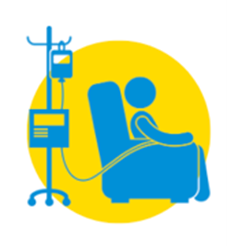
A couple of months or years out from a transplant, a transplant recipient should have adjusted to their new routine of medications, altered eating habits and exercise. Many recipients report improved quality of life, return to normalcy and improved energy. For some of those who were on dialysis, the relief of not having to frequently attend dialysis clinics and return to a normal living routine has been cited as a great improvement. However, some people may feel declines in energy, health or cognitive function. Furthermore, the burden of medication and frequent checkups may take a toll, and many recipients report anxiety and stress about their transplant. While most recipients overwhelmingly report a sense of freedom, gratitude and improved quality of life, it is important to be cognizant of concerns and burdens that may arise. Transplant support communities such as TransplantLyfe can help relieve these burdens and provide a space to share your concerns throughout the entire transplantation process, including long after the initial surgery.
Keeping A Transplanted Kidney Healthy

One of the most common stressors after transplant is thinking about transplant failure. Fortunately, kidney transplants last on average between 10 to 12 years, and individuals can help protect their transplanted kidney with a healthy lifestyle and regular checkups with their transplant team. Taking care of your mental health may also be important, as stress may affect physical health. Living with uncertainty is a core part of post-transplant life but living with depression or constant anxiety about transplant should not have to be. Individuals may find it helpful to share their concerns in a support group and hear from other transplant recipients who have similar concerns or who have even had a transplant fail. Having social support and knowing they are not alone in this transplant journey can make a huge difference in an individual’s quality of life and their transplant longevity.
Other frequently reported concerns include the transplant’s effect on other diseases, the cost of healthcare, the burden on loved ones and lifestyle changes. It is always important to discuss how your transplant and new routines may affect other diseases, such as diabetes or hypertension with your transplant team and other medical professionals. Fortunately, many of the recommended lifestyle changes for protecting a transplant may also help improve overall health and help protect against other complications.
Normal Life Post Transplantation

After transplant surgery, the transplant will be taking anti-rejection medications for the rest of their life, and will need frequent checkups to monitor the transplanted kidney. The transition after surgery can be difficult, and it may be helpful to turn to friends, family, or a community of like-minded transplant recipients for support and advice. There are many possible complications after a transplant, and the feeling of improved health may be inconsistent as time goes on. It is important for a transplant patient to stick to the routine of medications, healthy eating habits, and exercise as recommended by their doctors, and to be mindful of and report any health changes as they arise. Finally, it may be helpful to prepare their loved ones and the people who are supporting you on the transplant journey ahead of time with any concerns and potential changes that may be expected after transplant[3]. While many recipients focus on the physical aspects of the transplant, the psychological and social aspects may be important to improving a transplant recipient’s quality of life and to protect the transplant.

Your transplant journey is unique to you, and your transplant team will help you create a plan that is tailored to your individual goals and needs, such as creating new eating plan, exercise routine and checkup schedule. As you adjust to your “new normal”, be sure to speak up about changes that don’t work for you, especially with nutrition or exercise. A transplant can be a life-changing event, but it is important to manage your expectations of life after your transplant and lean on your loved ones and social support throughout the ups and downs.
[1] Kidney transplant – Mayo Clinic. Mayoclinic.org. https://www.mayoclinic.org/tests-procedures/kidney-transplant/about/pac-20384777#:~:text=In%20other%20people%2C%20it%20may,within%20eight%20weeks%20after%20transplant. Published 2022. Accessed May 23, 2022.
[2] Martins C, Pecoits-Filho R, Riella MC. Nutrition for the post–renal transplant recipients. Transplantation Proceedings. 2004;36(6):1650-1654. doi:10.1016/j.transproceed.2004.06.065
[3] Tucker, E., Smith, A., Daskin, M., Schapiro, H., Cottrell, S., Gendron, E., Hill-Callahan, P., Leichtman, A., Merion, R., Gill, S. and Maass, K., 2019. Life and expectations post-kidney transplant: a qualitative analysis of recipient responses. BMC Nephrology, 20(1).
In Partnership with CSL Behring
What is Kidney Rejection?
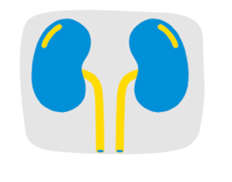
A transplanted kidney is foreign to your body, so your immune system may react strongly. This reaction is what leads to kidney rejection. Your medications are meant to suppress your immune system to prevent it from attacking the new kidney, but sometimes kidney rejection occurs regardless. Most commonly, kidney rejection happens in the first six months after surgery, but it can happen at any time after transplant. When caught early enough, kidney rejection can usually be treated before there is any irreversible damage. Consult your medical team with any changes to your health as well as any signs and symptoms of kidney rejection that they tell you to look out for, which may include:
- Pain or tenderness around the kidney transplantation site
- Swelling
- Sudden weight gain (greater than 2-4 pounds) within 24 hours
- High fever (greater than 100 degrees Fahrenheit or 38 degrees Celsius)
- “Flu-like symptoms” (chills, nausea, vomiting, diarrhea, aches or muscle weakness, headache)
- Fatigue
- Decrease in urination
Having a “rejection episode” does not necessarily mean your transplanted kidney will be completely rejected or that it is no longer functioning. Early recognition and treatment can help maintain your transplanted kidney and prevent future rejection episodes. However, if left unrecognized or untreated for too long, kidney rejection can cause major damage to the transplanted organ. Other causes of kidney rejection may include infection, long-term side effects of medications, and not taking prescribed anti-rejection medications.
Types of Kidney Rejection
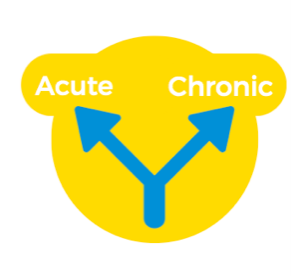
Kidney rejection is classified by the timing of rejection or the part of the immune system that is involved.
For timing, kidney rejection is split into 2 classes: acute and chronic.
- Acute rejection can happen anywhere from days to weeks after surgery, and it is most common within 6 months of the transplant.
- Chronic rejection may happen months or years after transplantation, and it is not well understood.
Fortunately, the five-year survival rate of transplanted kidneys is currently higher than 80%. Taking your medications as prescribed and checking in regularly with your medical team may help increase the lifespan of the transplanted kidney and catch kidney rejection early. [1]
Monitoring for Kidney Rejection
The goal of certain clinic visits and lab tests is to test the function of the transplanted kidney and identify problems as early as possible. Consult your medical team for medical advice and information about any scheduled blood work or tests, as understand your specific transplant and health needs.
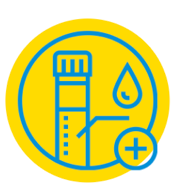
Protocol kidney biopsies may be scheduled around 3-6 months post-transplant as well as 1-year post-transplant, but the schedule varies from person to person as well as by the transplant program. During a kidney biopsy, a small sample of the transplanted kidney tissue is removed with a small needle and examined for signs of rejection. Biopsies are considered the gold standard for evaluating any damage to the transplanted organ. However, biopsies can only detect rejection symptoms that are present at the moment, so it is important to consult your transplant team if you experience any symptoms of kidney rejection or changes to your health between scheduled visits.
Aside from biopsies, routine blood work and renal ultrasounds may also help screen for rejection. Clinical indicators used to assess possible rejection may include:
- an increase in serum creatinine, which is a marker of kidney function detected in blood tests
- a significant decrease in urine output
- checking for a complete blood count
- taking a metabolic profile to assess kidney function
- checking the levels of the anti-rejection medications (i.e. tacrolimus, cyclosporine),
- an analysis of the urine
- administering a viral Polymerase Chain Reaction (PCR) test for possible infection.
It is possible to not experience any symptoms in the early stages of kidney rejection, so it is crucial for transplant recipients to follow their doctor’s medical advice and adhere to scheduled check-ins. It is also possible that the symptoms of rejection can be due to other conditions, such as infection, which may compromise a transplanted kidney. It is important to report any changes in your health to your medical providers.
Treating Kidney Rejection
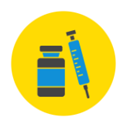
The first step in treating kidney rejection is accurately diagnosing and classifying the type of rejection, as well as the parts of the immune system involved. Treatment is guided by the kidney biopsy, and the aggressiveness of treatment is determined by the severity of the rejection. Conventional treatment may include increasing the dose of anti-rejection medications such as steroids. Other medications may be prescribed, specifically for combatting the immune cells that have been inappropriately activated to target a transplanted kidney.
If it’s not Kidney Rejection, What Is It?
The only way to rule out kidney rejection is by kidney biopsy. However, there may be alternative explanations for symptoms. Because anti-rejection medication suppresses an individual’s immune system, which is meant to protect the body from external invasion, symptoms could also be caused by an infection.[2] It is important to be seen my your doctor if you experience any changes to your health so they can provide you with an accurate diagnosis and treatment plan.
Future of Drugs for Rejection

The field of anti-rejection medications has changed dramatically in recent years, and new research is investigating promising avenues for improving detection, prevention and treatment of kidney rejection.
As previously stated, kidney rejection can occur without any symptoms, and early detection and treatment is crucial for prolonging the lifespan of the transplanted kidney. Researchers are developing cell-free DNA technology to identify signs of kidney rejection that are currently undetected by conventional tests[3]. Development of biomarkers with increased sensitivity and better screening protocols may help transplant teams catch rejection earlier.
Another avenue of research is improving the prevention of kidney rejection by better understanding the risk factors for rejection. Using clinical data from transplant recipients, researchers are developing better models for predicting rejection, which could one day be used to tailor medications and monitor for personalized risk profiles. Researchers are also investigating immunotherapy strategies that may block earlier events which would otherwise lead to transplant rejection. Research is also exploring whether gene therapy can potentially restrict immunosuppression to the transplanted organ before transplantation occurs. This research is in its early stages, but if it is safe and effective, could potentially prevent the immune system from activating without suppressing the entire body’s immune system.

Treatment of rejection is a continuously evolving field and research is moving toward more selective and targeted drugs meant to block the parts of the immune system that attack the kidneys, while leaving the rest of the immune system active. Some research aims to potentially increase the efficacy and reduce side effects of anti-rejection medications by avoiding suppression of the entire immune system. As our understanding of transplant rejection and the immune system improves, new pathways and molecules are unearthed as promising candidates for potential new drug therapies and treatments for kidney rejection[4].
1]https://www.ncbi.nlm.nih.gov/books/NBK535435/#:~:text=hours%20after%20grafting.-,Acute%20rejection%20occurs%20days%20or%20weeks%20after%20transplantation%20and%20can,after%20organ%20or%20tissue%20transplantation.
[2] https://pubmed.ncbi.nlm.nih.gov/12464131/
[3] https://www.natera.com/organ-health/prospera-organ-transplantation-assessment/clinicians/#:~:text=Prospera%20is%20a%20transplant%20rejection%20test%20that%20uses%20a%20simple,rejection%20of%20a%20transplanted%20kidney.&text=Read%20Flipbook-,Through%20the%20use%20of%20advanced%20cell%2Dfree%20DNA%20technology%2C%20Prospera,might%20lead%20to%20kidney%20loss.
[4] https://link.springer.com/content/pdf/10.2165/00003495-199754040-00003.pdf
In Partnership with CSL Behring

We all love a good movie or show. Who doesn’t like to take a break from real life? While tuning in may feel like harmless fun, is it possible that the entertainment industry is actually doing a disservice to some groups like the transplant community? The way that the entertainment industry depicts different groups and communities can have a large impact–whether good or bad—on how these communities are viewed on a larger scale. In this article, we are going to talk about some of the most prevalent myths from TV and movies around organ transplantation. *Warning: movie spoilers below*
Myth 1: It’s fast and easy to get a transplant.

While Grey’s Anatomy does a valiant job of maintaining medical accuracy, it fails to show just how long and difficult it can be to get a transplant. In a recent season, a patient is in kidney failure and the show gives the illusion that if you need a transplant, the doctor simply puts you on a list, you are hospitalized for a few days, and then you get your transplant. While it is possible to receive a transplant this quickly, it is the exception…not the rule. The reality is that there is a worldwide shortage of organs. Over 100,000 people in the US alone are currently on the national waiting list while approximately 42,000 transplants were performed this past year, which is an annual record*. Advocates, researchers, policymakers, and more are working relentlessly to address this problem.
Myth 2: You can take on the memories or traits of your transplant donor.

While physical, mental, and emotional changes post-transplant are natural, you do not inherit memories, talents, or other qualities of the donor. 21 Grams, a 2003 thriller featuring Sean Penn and Naomi Watts, fictionally portrays this when a heart transplant recipient falls in love with his donor’s widow. Other outlandish storylines include the 90’s film, Body Parts, where the protagonist receives an arm transplant and takes on his donor’s sinister tendencies.
Myth 3: If you are an organ donor, medical professionals will not try as hard to save your life.
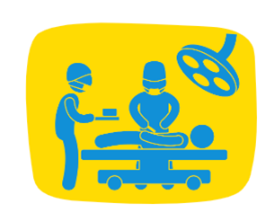
This is simply not true. Doctors take an oath to care for every patient in their charge; it is their duty to treat every patient to the fullest of their capabilities. In the movie Fractured, this myth is on display on the big screen when the main character’s daughter falls and is rushed to the hospital. After his daughter disappears from the emergency room, he finds her in an operating room about to have her organs removed. Although it turns out this is a hallucination, it doesn’t stop the narrative.
Myth 4: You can purchase an organ from an individual.
Buying and selling organs is illegal in the US. Transplants are registered and monitored through government entities and your transplant center. Despite this, the fallacy that this can occur is common in media productions. The plot in the movie, The Donor, for example, shows a woman who purchases a kidney to circumvent the waitlist.
Myth 5: Special treatment is given to affluent individuals with connections.
Similar to myth #4, monetary donations and connections cannot influence a patient’s position on the waitlist. In the cases of The God Committee and Designated Survivor, protagonists face ethical dilemmas in employing these methods to move a loved one up on the waitlist. The only factors considered in organ matching are medical and logistical. Personal or social characteristics, such as celebrity status or income cannot influence transplant priority.
